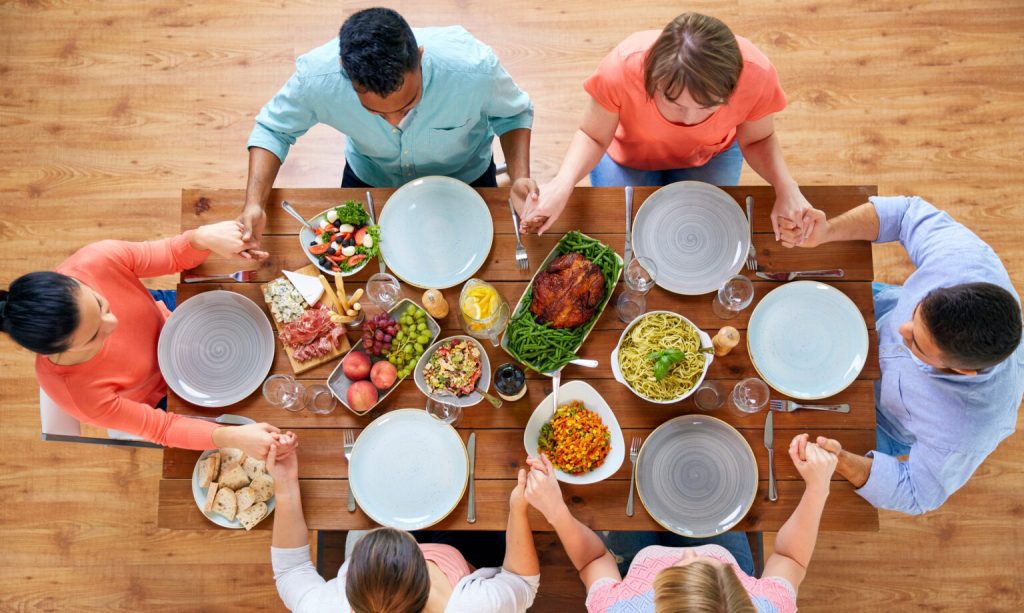November presents us with calm after summer’s exciting festivities. As we near the last leg of the year, this is a time that can allow us to enjoy fall traditions and a slower pace. What comes to mind for most in the United States would be our Thanksgiving holiday. An entire day dedicated to love and appreciation. Gratitude is much more than gift-giving, and remembering to say “Thank you”.
Gratitude
The essence of a healthy family system relies on empathy and gratitude. It is feelings such as thankfulness and appreciation that implement grace into our significant bonds. It is a choice. An attitude that requires effective communication, healthy relations, and a warm heart.
“Be thankful for what you have; you’ll end up having more. If you concentrate on what you don’t have, you will never, ever have enough.” – Oprah Winfrey
Family
Families are uniquely designed and made up of various traits. Family- our first source of social interaction, the building blocks of our rituals, and the framework of our values. Unlike joining a formal group by way of an induction ceremony, we naturally develop a sense of loyalty to our family system. It’s fair to say that there’s no perfect family, as conflict, life stress, and other challenges will naturally present. Some families have an affectionate culture of hugs and verbal reassurance; others differ in their approach toward emotional connection.
It is known statistically, that a percentage of individuals are raised in unhealthy family systems. Trauma can certainly void space for developed empathy, gratitude, and warmth. The framework of family impacts a person’s ability to display positive, sincere bonds with others. Mental health challenges such as Dissociative Identity Disorder (DID) can present as a reaction to trauma, unmet essential needs, and negative representation of emotional regulation. If trauma has impacted you or your family, it’s encouraged to reach out to your community resources; and therapeutic services such as Milestones Counseling.
Truly, our nuclear family environment has a grand impact on our personality, self-development, and securing significant relationships. It’s more than family traditions, holidays, and thank you’s once a year at table gatherings. Families embody individuals that desire security and appreciation. It’s within our family dynamic that we should develop goals, boundaries, and awareness of community. “Research suggests that about 50 percent of our empathic capacities are genetically inherited and the rest we can learn, because empathy is not simply a matter of wiring.” – Krznaric
Practicing Gratitude
Implementing gratitude takes practice and a genuine motive for the wellness of others; as well as self. Gratitude in a family system might look like acts of kindness, verbal reassurance, quality time, gestures of affection; and overall efforts around connectedness.
Ideas:
- Write a thank you note for a loved one.
- Reach out and check on someone you care about. Connect in a meaningful way and remind them of their strengths.
- Invite a family member to join you in a hobby or wellness activity.
- Giving back to the community as a family.
- Implement family meetings and create a safe space to process emotions.
Togetherness and its benefits
By hosting gratitude in your home, family members have opportunities to develop togetherness. Gratitude is much more than feelings of thankfulness and appreciation, it’s recognition, attitude, purposeful and powerful. Families thrive when healthy balances are in place to guide the system’s functioning.
Part of human development includes the brain’s wiring around life experiences. A benefit of establishing gratitude in the family system would be acquiring patterns of reciprocal kindness. Modeling gratitude for our youth demonstrates how to develop and maintain healthy bonds; useful for positive social skills. Recurring displays of appreciation and empathy result in secure relationships.
Benefits continue in the aspect of physical health. Under the umbrella of wellness, it is advocated that one must take care of mind and body. Scholarly research has shown the significance of maintaining mental health to decrease impairments of physical health. The connections we have through family form the strength of our mental stability.
On a larger magnitude, togetherness and family gratitude promotes positive-minded individuals. Activating gratitude and a safe space to express emotions, as early as infancy, has shown results in adulthood. These results include skills such as being an efficient problem-solver, better patterns of communication, and strengths useful for comforting others.
With love and grace:
Just like other valuables in our life, for gratitude to be at the core of a healthy family, care and consistency are vital. Fall into the autumn season with the willingness to reflect, realign and reassure your loved ones of their significance. With love and grace, provide the empathy you desire to receive. By doing so, the entire family system is working towards an improved status of wellness.
Through the natural flow of family conflict, relationships can heal sooner with kindness and gratitude at the roots. Gratitude can turn even the smallest details of our family culture into an abundance of joy. To be acknowledged verbally, or with empathetic gestures from those we love, eliminates assumptions and provides clarity of a strong bond. Through love and grace, a family’s house becomes a home.
As we admire seasonal changes, such as nature’s colorful leaves and preparation for winter; take a moment to show your loved ones gratitude. Get a head start on your family’s 2023 resolutions and goals.
Have life challenges led to family disconnect and distance from core values? Are relationships and/or practices in your family in need of revision and therapeutic support? If so, give Milestones Counseling and Consulting a call at (443) 574-4295.
Submitted by: Shaneka Campbell, LGMFT

